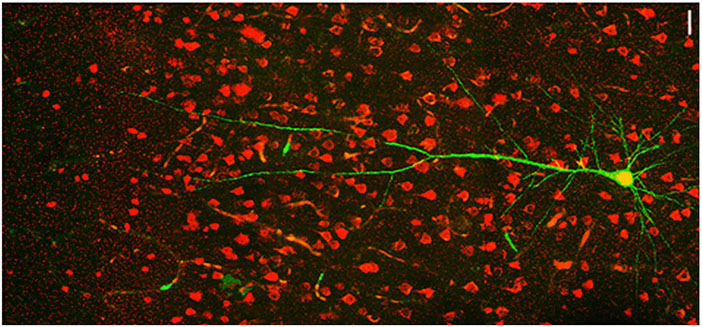The finding may point to future treatments for some severe cases of epilepsy.
A new study in Neuron focuses on the role that a lack of the protein CLOCK plays in several forms of epilepsy.
The study provides evidence that excessive excitation of specific brain cells may be due to a lack of CLOCK in the region of the brain that produces the disorder’s signature seizures. This effect, researchers found, is stronger during sleep.
The finding potentially gives researchers a new way to develop a treatment for some of the most severe cases of the disabling disorder, says corresponding author Judy Liu, MD, PhD, an assistant professor of neurology. Because the study directly implicates a specific protein pathway in a specific part of a patient’s brain, Liu says a strategy for further research could be to deliver a drug that compensates for the lack of CLOCK, or perhaps a protein it affects, directly in that location.
“This could be a viable target if we take a local and focal approach,” Liu says.
Watching CLOCK
When patients with epilepsy don’t experience enough benefit from current medications, doctors sometimes treat the disorder by surgically removing the area where seizures arise. Liu, who was an investigator at the Children’s National Medical Center in Washington, DC, during the research, decided to study tissues removed from eight patients with either focal cortical dysplasia or tuberous sclerosis complex to see if she and her co-authors could discern what might be going awry at the molecular level. As an experimental control, they used healthy tissues from the patients that already had removed to allow access to the seizure-producing sites.
The first step was to analyze the transcriptome of the tissues, or the various RNA transcribed from DNA to produce proteins. They found some significant differences. In particular, they measured a notable decrease in the expression of RNA for CLOCK compared to controls. Further analysis, including in tissues from more patients with other forms of epilepsy, also showed that CLOCK RNA and protein were often significantly lacking in both in excitatory and inhibitory neurons in affected brain regions.
The researchers weren’t looking for CLOCK per se, Liu says. It just stood out as especially significant across multiple forms of epilepsy in patients.
“This was an unbiased screen,” she says. “We were hoping to find targets we can use for therapy, and we were also trying to figure out molecular differences in different types of epilepsy. But the effect on CLOCK was so consistent that we didn’t manage to stratify different causes.”
Continue reading here.




